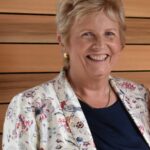This article was originally published on the RSM website. Original article link
Having difficult conversations with patients is an undeniable reality in healthcare. The way these exchanges unfold can have profound consequences, shaping the doctor-patient relationship and leaving lasting impressions. A collaboration I was heavily involved in between the Royal Society of Medicine (RSM) and BodySwaps to transform healthcare interactions through the power of virtual reality (VR) is, therefore, an innovative and potentially exciting undertaking.
In a world where VR is predominantly used for gaming and entertainment, its potential as a tool for preparing individuals for serious and sensitive situations is somewhat overlooked. However, the RSM and Bodyswaps partnership aims to harness this technology’s immersive capabilities to empower healthcare professionals to navigate crucial conversations.
The doctor-patient relationship lies at the heart of healthcare. There are many benefits for patients, their relatives and their healthcare providers when communication between all is good. Research shows that patients are better able to explain their concerns, make more informed decisions and rate satisfaction with their overall care more highly if the communication between them and their healthcare providers has been effective. There is also evidence that doctors who can communicate well experience less emotional burnout, feel more competent professionally and have fewer complaints made against them.
Many education programmes have been developed to assist healthcare professionals when discussing the multiple sad, bad and just plain difficult things that are part of modern medicine. The best ones are effective at changing communication skills and, importantly, increasing self-confidence. These are, however, resource intensive and require experienced facilitators working with skilled patient simulators (actors).
This is why there is increasing interest in harnessing the opportunities offered by digital solutions and virtual reality. This could permit learners to develop communication skills in their own time and to rehearse as often as they like with feedback provided by carefully constructed algorithms. They can engage in realistic scenarios with AI-powered avatars that replicate the emotions and challenges of real-life interactions. The immersive nature of VR creates a safe and controlled environment where doctors can experiment, learn from their mistakes, and receive detailed feedback.
Development of the first module required a topic area that would cross all medical specialties. Throughout my more than 30 years of communication skills training, one ubiquitous difficulty expressed by junior and senior healthcare professionals alike has been handling the angry patient or relative. Although this does not occur that often, the emotions provoked can overwhelm the ability of healthcare professionals to care for the patient in question and, importantly, other patients whom they need to consult with later in the clinic. By using VR simulations, doctors will be able to practise and refine their communication skills in a safe, virtual environment, ensuring they are fully prepared for real-world scenarios.
By preparing doctors to handle difficult conversations with empathy and competence, we ensure that patients receive the care they deserve, healthcare providers thrive, and the doctor-patient relationship flourishes – with positive results all round.
Transforming the doctor-patient dialogue goes beyond technological advancements. It recognises the profound impacts these conversations can have on patients’ lives and the healthcare professionals who are caring for them. VR training allows doctors to make and learn from communication mistakes without upsetting patients during their most challenging moments. It embraces the understanding that these conversations are anything but a game, requiring genuine empathy and skilful navigation.
Find out more about the RSM / Bodyswaps learning module
Image credit: Brighton and Sussex Medical School
Author

Professor Dame Lesley Fallowfield
Dame Lesley Fallowfield is Professor of Psycho-oncology at Brighton & Sussex Medical School, University of Sussex where she is Director of the Sussex Health Outcomes Research & Education in Cancer (SHORE-C) group. Dame Lesley originally trained as a nurse at Guy’s Hospital, London but then did a BSc in Experimental Psychology at Sussex. Research for her doctorate examining the perceptual correlates of optic nerve damage in demyelinating diseases was completed at the Universities of Sussex and Cambridge. In 1991 she became the full-time Director of a Psychosocial Oncology Group and in 1997 was awarded the first European Chair in Psycho-oncology from University College, London. Her research interests are wide and include the measurement of quality of life in clinical trials of cancer therapy and the training of communication skills for health care professionals in cancer. She has published over 450 papers, many book chapters, 3 text books and numerous evidence-based educational materials for the teaching of communication skills. She lectures and runs training workshops throughout the world in psychosocial oncology, quality of life assessment and communication skills. She is a Fellow of the UK Academy of Medical Sciences, an Honorary Fellow of the Association of Cancer Physicians UK and was made a Dame Commander of the Order of the British Empire in 2016.
Declaration of interests
I have read and understood the BMJ Group policy on declaration of interests and declare the following interests: None